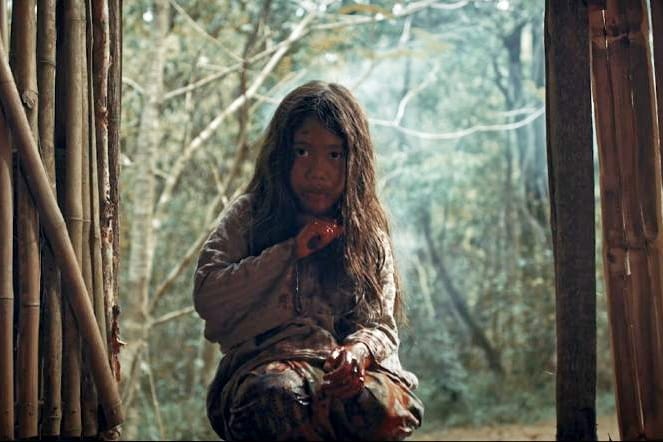Spotlight On Malaysia: Are The Global Streamers Speaking Your Language?

Every few weeks, Streamlined will look at a territory that we haven’t heard much from during the pandemic. This week, we’re shining the spotlight on Malaysia, while in other news, it’s been a busy week for Asian directors boarding high-end English-language series; CJ ENM and Stan are expanding their content war chests; and several new Indian and Hong Kong projects have been announced, along with some festival and arthouse channel news.
MALAYSIA POST-PANDEMIC TEMPERATURE CHECK
After being entirely closed to visitors for two years, Malaysia is reopening its international borders to quarantine-free travel on April 1, 2022, although there will be some Standard Operating Procedures (SOP) yet to be announced. How have the local content industries been faring during these past two years?
CINEMAS were forced to close in March 2020 and aside from a few small temporary openings, weren’t fully back in action until September 2021. Two of the biggest circuits, GSC and TGV, operated pop-up F&B outlets in shopping malls during this period, but a third circuit, MBO, went out of business and had most of its assets acquired by GSC. Chinese exhibitor Dadi Cinema moved into the market last year and opened sites in Kuala Lumpur and Subang Jaya, on the outskirts of KL.
BOX OFFICE was down 90% in 2020 and while 2021 figures are not yet available, recovery only started to happen at the end of the year with the release of Spider-Man: No Way Home, which grossed $10m, according to Box Office Mojo. Few local films were released during this period as producers either held back their bigger titles or sold them to streaming platforms. Quite a few low-budget local films opted for a TVOD debut on Astro First, where they performed reasonably well.
Among films that were brave enough to venture forth in cinemas, the best performing included comedy prequel Nasi Lemak 1.0, which grossed around $620,000 in January 2022; award-winning arthouse horror Roh, which took $120,000 in August 2020, and Hail, Driver!, which took $50,000 last December, despite being sandwiched between Spider-Man and The Matrix Resurrections.
PRODUCTION was halted in March 2020 and restarted in June 2020 adhering to strict SOP rules, which include no physical contact between cast members and Covid coordinators on set. International productions have not been able to enter and shoot in Malaysia during the pandemic, meaning that Iskandar Malaysia Studios has been quiet, but that should change now that the country is reopening. Local production has been ramping up over the past few months, and as there’s a large bottleneck of stalled productions, there’s been an inevitable shortage of cast and crew, although that situation is starting to improve.
GOVERNMENT INCENTIVES during the pandemic were mostly focused on supporting the local industry, as foreign productions couldn’t come in and shoot, although it was announced that the Film In Malaysia Incentive (FIMI) scheme was utilised for post and VFX work on Netflix’s 6 Underground and Disney productions including The Mandalorian (it’s not clear when that work was completed).
Malaysia’s National Film Development Corporation (FINAS) rolled out funding for Malaysian producers to make content for local broadcasters Astro, TV3 and RTM, to keep the industry working during the pandemic, as well as grants for workshops, masterclasses and script development.
GLOBAL STREAMERS are not as active in terms of original production in Malaysia as they are in neighbouring Indonesia, although Disney+ Hotstar is commissioning Malay-language series including animation Ejen Ali Season 3. As in India, Disney+ Hotstar has premiered some of the bigger local titles that would usually open in cinemas, including J2: J Retribusi, Zombitopia and Ada Hantu. Netflix has produced some Malaysian originals, including Chinese-language series The Ghost Bride and Malay-language film Pasal Kau!, but appears more focused on acquisitions than production.
Malaysia’s two biggest players, Astro and MediaPrima, seem to be surviving the streaming onslaught by adopting the ‘if you can’t beat them, join them’ mentality. Pay-TV operator Astro carries Disney+ Hotstar, Netflix and HBO Go, giving the streamers reach among rural populations, and MediaPrima is co-producing with and selling its library content to the global streamers. Former MediaPrima exec Ahmad Izham Omar is now executive director of content & creative for Disney+ for Southeast Asia.
REGIONAL STREAMERS have been actively producing in Malaysia for a while, but two of the earliest entrants, HOOQ and iflix, crashed out in early 2020 (iflix was acquired by China’s Tencent); and while Tencent, China’s iQiyi and Hong Kong-based Viu are all currently developing or producing Malaysian content, budgets are lower than the global streamers and the Chinese players have been impacted by regulatory crackdowns and other headwinds at home. iQiyi has acquired a slate of series from MediaPrima and produced Chinese-language Malaysian originals including Little Nyonya and The Ferryman: Legends Of Nanyang. Viu’s Malaysian originals include a Malay-language remake of Korean fantasy thriller Black.
COMING SOON: Now that production is moving again, several projects that won FINAS grants or loans from the Ministry of Finance’s MyCreative Ventures scheme in 2019 should start emerging this year and next. Two big-budget privately-financed projects – racing car action drama The Catcher, and Peak Of Heaven, about the first Malaysian team to conquer Mount Everest – are expected to start shooting. Upcoming theatrical releases include big local sequels, Police Evo 3 and Abang Long Fadil 3, that were held back during the pandemic, as well as Adrian Teh’s The Assistant, scheduled for May 19, following a premiere at Italy’s Far East Film Festival.
THE BIG PICTURE: It’s perhaps not surprising that the global streamers are more focused on Indonesia (population 275m) than Malaysia (population 33.5m) and while their main languages are mutually intelligible, there’s not much history of content travelling between the two countries. Complicating matters, Malaysia is fragmented into three ethnic and linguistic groups – Malay, Chinese (lots of dialects) and Indian (mostly Tamil) – that don’t tend to watch each other’s content. While in India, streaming is enabling content to cross linguistic barriers, in Malaysia, there are cultural and religious divisions, in addition to different languages being spoken, none of which is being helped any by the fractious political climate.
At the same time, there are talented filmmakers, writers and actors in Malaysia and the country’s production infrastructure is arguably more developed than in Indonesia (please feel free to comment if you disagree!!). There could potentially be content coming out of Malaysia that travels across not just its home market but also across Southeast Asia, but the global and regional streamers are still figuring all this out. It doesn’t help that content executives in Southeast Asia are hopping between different platforms at an alarming rate, either because they’re getting better offers from new entrants, or because entire teams are being sacked when something doesn’t work out.
It does appear that as the global streaming wars grind on, there will be winners and losers in terms of investment being geared towards certain Asian languages, with the winners looking like production centres working in Korean, Japanese, Mandarin Chinese, Hindi and standard Indonesian. Does everyone else in Asia just get the crumbs? Is there a similar situation in Europe where investment is flooding into France, Germany, Spain and Italy, but other territories not so much? Is the future of your industry going to be tied up in whether the global streamers are speaking your language?
IN OTHER NEWS…
- It’s been a busy week for announcements about Asian directors on high-end English-language projects. Variety reported in an exclusive that India’s Ritesh Batra (The Lunchbox) will write and direct an adaptation of Rohinton Mistry’s award-winning novel A Fine Balance for HBO. The seven-part series is being produced by Blueprint Pictures and Northwood Entertainment and expected to shoot in India later this year. Deadline reported in an exclusive that Singapore’s Anthony Chen (Ilo Ilo, Wet Season) will direct Priyanka Chopra Jonas and Sienna Miller in an adaptation of Shilpi Somaya Gowda’s novel Secret Daughter for Amazon Studios. Shruti Ganguly is adapting the novel and Sunset Lane Media, Chopra Jonas’ Purple Pebble Pictures, Miller and Tori Cook will produce.
- Korea’s CJ ENM is investing $82m (KRW100bn) into KT Studio Genie, the production subsidiary of Korean telco KT, in order to secure early distribution rights to content for its various channels including tvN and OCN and streaming service TVing. CJ ENM already owns one of Korea’s biggest drama producers, Studio Dragon, recently acquired the scripted content division of Endeavor Content and pacted with Paramount Global on a slate of films and series.
- Australian streamer Stan, owned by Nine Entertainment, announced a large slate of local originals, including the first three projects through a deal with US studio Lionsgate to co-develop series. Stan and Lionsgate will work together on megachurch family drama series Prosper; psychological thriller The Geography Of Friendship; and outback comedy crime series Population: 11. Lionsgate will distribute the series outside Australia.
- Indian veteran filmmaker Shyam Benegal is in post-production on Mujib: The Making Of A Nation, a biopic of Sheikh Mujibur Rahman, known as the founding father of Bangladesh. Filmed in India and Bangladesh during the pandemic, the film is a co-production between Bangladesh Film Development Corporation (BFDC) and India’s National Film Development Corporation (NFDC). Arifin Shuvoo (Dhaka Attack) heads the cast of the film, which also stars Nusrant Imrose Tisha (No Land’s Man) and Fazlur Rahman Babu (The Salt In Our Waters).
- Hong Kong’s Emperor Motion Pictures (EMP) said it is investing $192m (HK$1.5bn) into its upcoming film slate and announced a few new productions scheduled to start shooting soon: Herman Yau’s War Customised, starring Jacky Cheung, Nicholas Tse, Karena Lam and Cya Liu, and Alan Mak’s Insider (working title), starring Aaron Kwok, Simon Yam, Raymond Lam and Alex Fong Chung-sun. Nicholas Tse is making his debut on War Customised as an action choreographer. EMP is also working on a sequel to Zhang Yimou’s Cliff Walkers.
- Manoj Bajpayee (The Family Man) will star in Joram, directed by Devashish Makhija and produced by Zee Studios and Makhijafilm, the production outfit run by the director and Anupama Bose. The film, about a bereaved father on the run with his baby daughter, is scheduled to start shooting in April. Bajpayee and Makhija previously worked together on short film Tandav and feature Bhonsle.
- Rialto International, a joint venture between New Zealand’s Rialto Channel and entrepreneur (and former Sundance Channel Global president) Bruce Tuchman, has launched an arthouse streaming service on the Amazon Prime Video Channels platform in Japan. The service will stream titles such as Chloe Zhao’s The Rider, Peter Bogdanovich’s The Last Picture Show and Gus Van Sant’s Finding Forrester, as well as Japanese classics including Akira Kurosawa’s Throne Of Blood.
- Takeshi Kitano will be attending Far East Film Festival (FEFF) in Udine, Italy to receive the Golden Mulberry Award for Lifetime Achievement. In addition to directing classics such as Sonatine, Kids Return, Venice Golden Lion winner Hana-bi, and Venice Silver Lion winner Zatoichi, Kitano has starred in films such as Nagisa Oshima's Merry Christmas, Mr. Lawrence and Hollywood films Johnny Mnemonic and Ghost In The Shell.
- New Zealand Film Festival (NZFF) announced it will take place from July 28 to September 4 this year, albeit in a smaller format given the country’s on-going Covid situation and the impact on ticket sales over the past two years. The festival was held as a hybrid event in 2020 and then in cinemas in 11 cities in 2021, although screenings in Auckland and Hamilton had to be cancelled due to lockdown. This year the festival will screen 50-60 films in 13 towns and cities, including Auckland and Hamilton, with the programming team headed by Michael McDonnell and Paris-based Sandra Reid. NZFF will start the process to replace artistic director Marten Rabarts (who left in Nov 2021) later this year.
That’s all for this week. Streamlined has fingers crossed for Drive My Car at the Oscars this weekend, although can’t watch the ceremony here in Hong Kong. Whether that is due to political censorship or nobody wanting to stump up for the broadcast rights, remains open to question.




